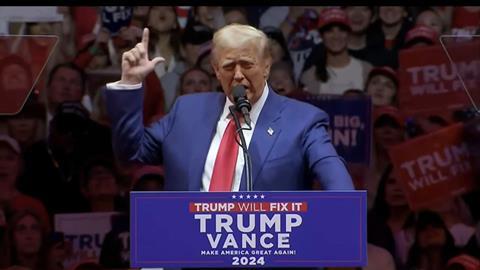Indirect impact of US charges could hit drama producers hardest and impact niche SVoD subscriptions

Drama producers could be among those hardest-hit by the indirect effects of US tariffs, despite the TV and film sectors’ output avoiding the immediate impact of the charges.
The tariffs introduced by US president Donald Trump last week are applied to products – rather than services such as TV shows – but that has not stopped Wall Street ditching US media shares as the global economy takes a hit.
Warner Bros Discovery, Roku, Fox Corp and Disney saw more than $16bn (£12.3bn) wiped off their valuations last week and Jeremy Roberts, head of the film and TV team at London law firm Sheridans, told Broadcast International that they are “already causing real damage”.
Roberts said the TV industry is “likely to be hit hard by the indirect impact of the tariffs, if they stay in place,” pointing to reduced commissioning spend if advertising budgets are hit by a global recession.
He also pointed to reduced consumer spending that could hit streaming subscriptions, adding: “This is especially bad news for second and third-tier streaming services, which will be the first to get cut.”
The effects on global exchange rates, for example the US dollar falling against the pound in the UK, could also impact the cost of production and Roberts said drama producers would likely bear the brunt of the impact.
“These indirect consequences of the tariffs – if they materialise – will likely hit scripted production hardest. Scripted content is the most expensive to produce and the easiest to cut back on.

“In contrast, TV sports are much better protected due to their fixed multi-year deals, making them less susceptible to sudden budget cuts.”
While Trump has already claimed that some countries are re-negotiating their respective tariffs, the US president’s “protectionist ideology” could see US media companies pressured to relocate production back to the US or tempted back by a stronger domestic federal tax credit.
“The situation is so dynamic, and Trump so unpredictable, that it is almost impossible to forecast what will happen next,” he adds.
“We just don’t know, and in uncertain times people tend to become more risk-averse – including those in commissioning. Consequently, some of the unfortunate casualties in the short term may be the kind of innovative dramas and experimental series that push the boundaries of storytelling and entertainment.
“These shows often rely on bold commissioning decisions and substantial investment, both of which are likely to be in short supply during periods of economic uncertainty.”







No comments yet